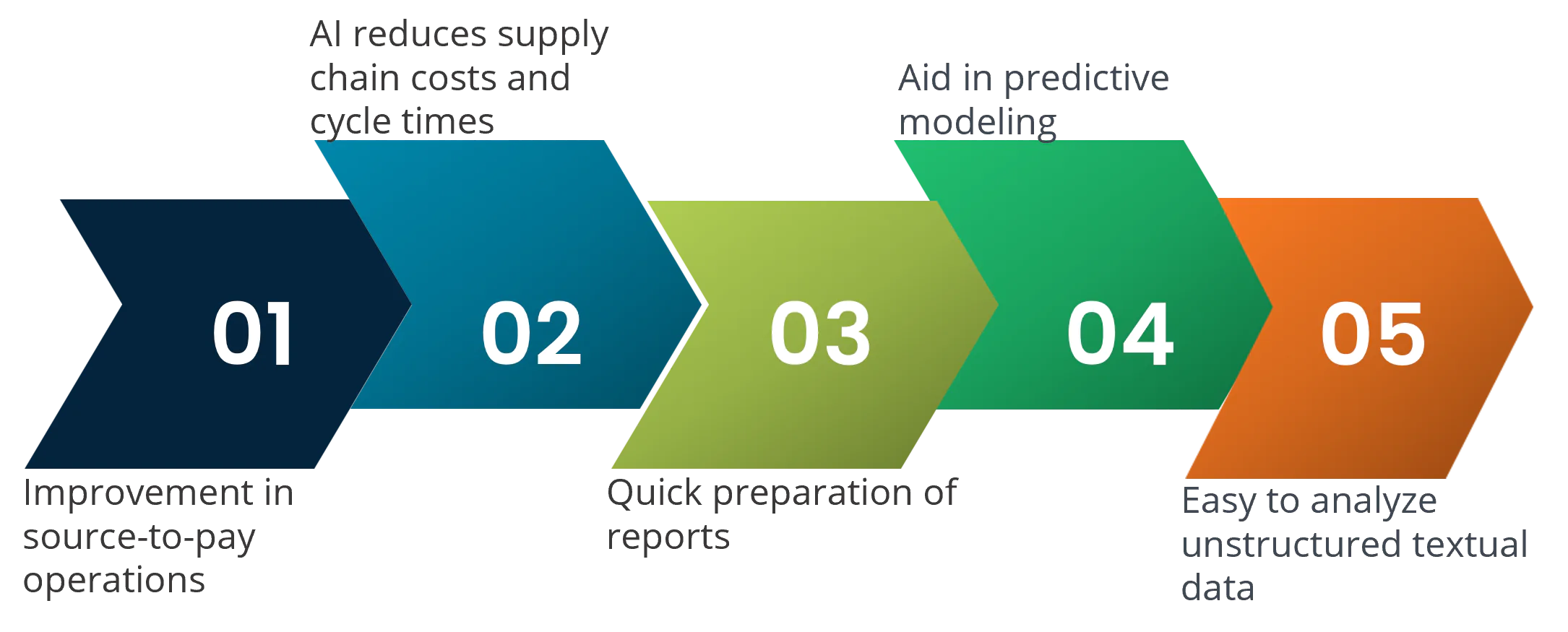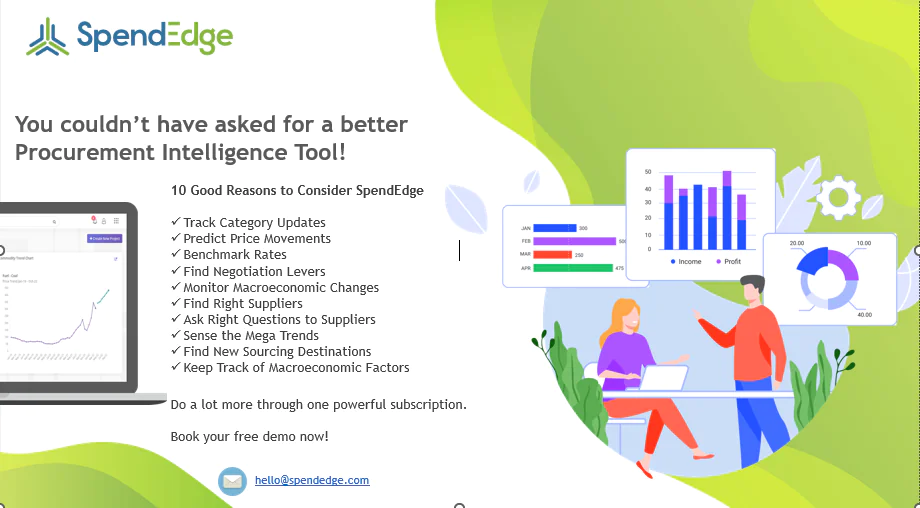Many procurement officers are considering how to integrate generative artificial intelligence (AI) into their daily operations. This is particularly challenging for those who have only recently implemented analytical AI and machine learning. Procurement leaders have been implementing operational improvements through hybrid models, automation, and centralized processes to gain control, visibility, policy enforcement, and reduce errors.
In the short term, generative AI can be useful for tasks that require extensive research, analysis, and content creation, especially when external data sources are involved. We believe that generative AI will eventually transform all aspects of a procurement organization, from strategy to operations. Generative AI has the potential to revolutionize many sourcing and procurement operations that still require manual processes. Although there is no definitive tool with these capabilities, generative AI represents a significant change in the evolution of source-to-pay strategy, governance, people, processes, and technology.
How can organizations get astonishing benefits from Generative AI?

Improvement in source-to-pay operations:
Generative AI has immense potential in source-to-pay by enabling proactive risk management, process automation, and decision-making. In an environment of increasing uncertainties, having instant access to accurate information is crucial for mitigating and managing risks and empowering organizations. Generative AI can play a significant role in automating various “create” processes within source-to-pay, such as generating documents like charters and contracts and facilitating transactions like purchase orders and invoices. By leveraging generative AI, organizations can streamline their operations and enhance efficiency.
AI reduces supply chain costs and cycle times:
Generative AI offers managers a range of recommended data, key attributes, policy scenarios, and reward profiles to aid in decision-making. One crucial aspect is identifying the targeted cost per shipment and implementing suitable measures to decrease the cost per unit. This reduction directly influences the profit and loss (P&L) statement. By leveraging generative AI, managers can access valuable insights and guidance to optimize cost management strategies and improve overall financial performance.
Quick preparation of reports, presentations, and RFPs:
Generative AI can aid in generating initial drafts and expediting the initiation of tasks. Essentially, AI has the potential to enhance individual productivity. Looking ahead, AI can become more seamlessly integrated into workflows and be provided as an embedded or supplementary service. This integration would further optimize productivity and streamline processes, offering users a comprehensive and efficient AI-powered solution.
Aid in predictive modeling:
This application deals with dynamic data that can be very complex and time-consuming to analyze. It has a wide range of applications, including network design in supply chain and logistics, lean inventory control, and dynamic demand forecasting. By constructing predictive models, potential risks can be detected, and proactive alerts can be offered. Predictive modeling can help procurement professionals make data-driven decisions, such as identifying pricing patterns and predicting future price fluctuations. Additionally, supplier performance can be assessed based on various factors such as quality, delivery reliability, etc.
Easy to analyze large amounts of unstructured textual data:
Generative AI enables organizations to analyze vast amounts of unstructured textual data, including news articles, social media posts, contracts, and customer feedback. Procurement professionals can benefit from textual data analysis with generative AI by deriving valuable insights and knowledge from unstructured text data to aid in vendor evaluation, compliance monitoring, market intelligence, and contractual risk management. Text mining and associated analytics can help generate actionable insights from currently untapped data sources.
How can organizations utilize the superpower of generative AI?
Development of chatbots:
AI-powered chatbots can greatly assist organizations in procurement by streamlining and enhancing various processes. Chatbots can provide instant and accurate information on supplier details, product availability, pricing, and delivery timelines, enabling efficient decision-making. They can automate routine tasks like generating purchase orders and invoices, saving time and reducing manual errors. Chatbots can also offer recommendations based on user preferences, helping organizations find the best suppliers and negotiate favorable terms. Overall, AI chatbots in procurement improve operational efficiency, enhance supplier management, and optimize cost savings.
Virtual assistants powered by AI algorithms:
AI-powered virtual assistants have the capability to enhance the efficiency of buyers in sourcing products. By leveraging AI algorithms, these assistants can suggest suitable suppliers that align with specific requirements, streamlining the supplier selection process. Additionally, they can negotiate contracts with vendors on behalf of buyers, aiming to secure favorable terms and conditions. This not only saves time and effort for buyers but also ensures optimal procurement outcomes. With the assistance of AI-powered virtual assistants, buyers can make more informed decisions and achieve greater efficiency in their sourcing activities.
Coordinate organization collaboration:
Coordinating organization collaboration involves understanding the implications and identifying the necessary skills across various functions, not limited to technical roles. This approach recognizes that effective collaboration requires a diverse set of skills and expertise beyond technical knowledge. Implications of organizational collaboration include improved communication, enhanced problem-solving, increased innovation, and better decision-making. Collaboration allows for the pooling of different perspectives, experiences, and ideas, leading to more comprehensive and creative solutions. It also fosters a sense of shared ownership and accountability, promoting a positive work culture and employee engagement.
Use of AI-generated data analytics:
AI-generated data analytics plays a significant role in organizational procurement by providing valuable insights and enhancing decision-making processes. Through advanced algorithms and machine learning techniques, AI can analyze vast amounts of data to identify patterns, trends, and anomalies. This enables procurement professionals to make informed decisions regarding supplier selection, pricing negotiations, and inventory management. AI-generated data analytics also helps optimize procurement processes, improve efficiency, and identify cost-saving opportunities. By leveraging AI in data analytics, organizations can enhance their procurement strategies and drive better outcomes.
How can SpendEdge help organizations in the implementation of AI solutions in procurement?
Our SpendEdge experts can assist organizations in the implementation of AI solutions in procurement by providing expert guidance and support. We offer comprehensive market intelligence and procurement advisory services, helping organizations identify suitable AI technologies and vendors. SpendEdge also provides insights on industry best practices and helps develop customized AI implementation strategies. Our expertise in procurement and AI enables organizations to navigate the complexities of AI adoption, optimize procurement processes, and achieve cost savings and operational efficiencies through the successful integration of AI solutions.





